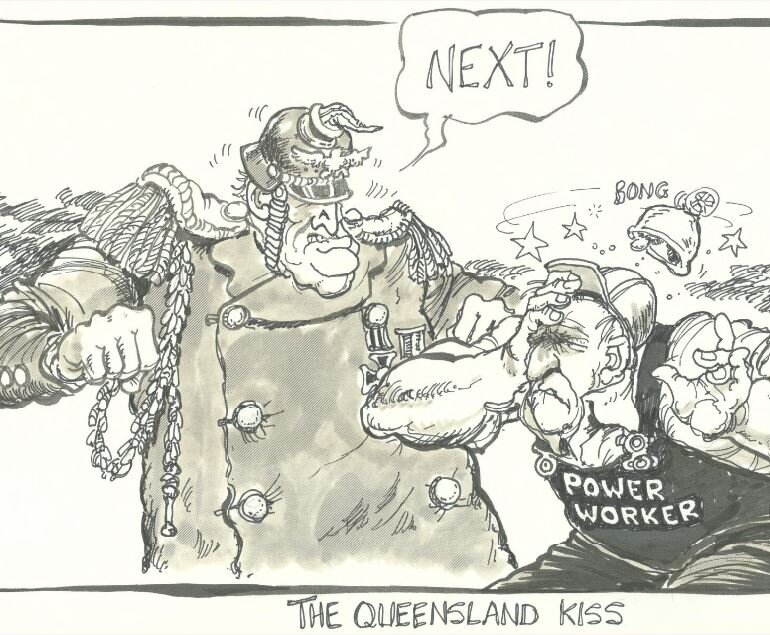
Today we are revisiting the dark moment in Australian history in 1985 when the Queensland government abruptly sacked 1000 electricity workers.
This was part of an attempt by the South East Queensland Electricity Board to replace permanent workers with contract labour.
Electrical Trades Union members went on strike to defend job security.
Queensland was led by the National Party premier Joh Bjelke-Peterson. Hs government was notoriously dodgy and anti-union.
On February 7, 1985, after the strike began the government declared a state of emergency.
It rushed in a series of anti-union and anti-strike laws – making picket lines illegal.
The dispute stretched over the following months and the striking workers held out with community support.
This included groups of clergy joining the picket line – often finding themselves under arrest for their troubles.
At one protest in April alone, 96 people were arrested.

The government brought incredible pressure to bear on the strikers. New laws threatened individual fines for strikers. The ETU was deregistered for six months.
Though they resisted with great courage and determination, the strikers were eventually forced to concede defeat.
Bjelke-Peterson was an advocate for the type of hard right-wing economics, often called neoliberalism, which is obsessed with attacking unions and driving down wages.
Unfortunately, there are still many proponents of these ideas in politics today.
This makes the 1985 dispute particularly important to remember. Because it shows the full force that these hard-right wingers will use to get their way.
They hate strong unions because strong unions mean working people sticking together for fairness and equality. What better reason could there be to join your union?
